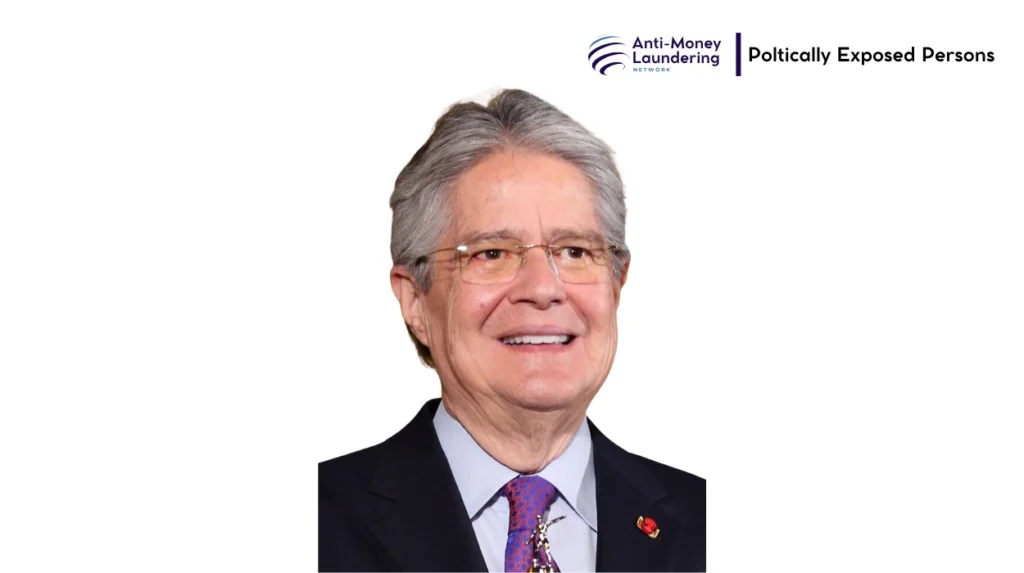Guillermo Lasso is a prominent Ecuadorian businessman, banker, and politician who served as the 47th president of Ecuador from 2021 to 2023. Known for his conservative economic views and business acumen, Lasso’s political journey represents an effort to navigate Ecuador’s economic challenges and social unrest while advocating for free-market principles and fiscal responsibility. His tenure as president was marked by significant public health efforts amid the COVID-19 pandemic, economic reforms, and social protests. This article provides a detailed profile of Guillermo Lasso, covering his life, career, personal aspects, wealth, legacy, and controversies, integrating key contextual insights.
Early Life and Background
Guillermo Lasso was born on November 16, 1955, in Guayaquil, the largest city and economic powerhouse of Ecuador. He holds Ecuadorian nationality and citizenship, reflecting his deep-rooted connection to the country. He pursued his education at the Universidad Católica de Santiago de Guayaquil, where he focused on economics and finance, providing a foundation for his future career in banking and public service. His early years in Guayaquil instilled in him a focus on economic liberalism and the importance of private enterprise as an engine for national development. These principles have guided much of his political and business endeavors throughout his life.
Personal Life
Guillermo Lasso’s personal life reflects a family-oriented foundation that has supported his career in public service. He is married to María de Lourdes Alcívar, who has been an active figure in his political campaigns and public life. Together, they have five children, whom Lasso frequently references as a source of inspiration and motivation. His family has played a discreet but consistent role in his political narrative, projecting an image of stability and traditional values. The balance between his professional responsibilities and commitments to family life marks a key aspect of his public persona.
Career and Achievements
Before his presidency, Guillermo Lasso built a successful career in finance, notably serving as CEO of Banco Guayaquil, one of Ecuador’s largest private banks. He entered politics with positions such as Governor of Guayas province and Superminister of Economy during an economic crisis in 1999. Lasso founded the Creating Opportunities Party (CREO) in 2012, positioning himself in the country’s political landscape as a proponent of economic liberalism and institutional reform.
His first two presidential bids, in 2013 and 2017, ended in defeat, with narrow margins in the latter race. However, persistence paid off when he won the presidency in 2021. During his tenure, Lasso introduced COVID-19 vaccination programs, economic relief measures, and social investment policies. His administration worked closely with the International Monetary Fund (IMF) and sought to strengthen ties with regional neighbors and the United States. Nevertheless, his government faced significant public backlash due to rising fuel and food prices, leading to nationwide protests and criticism of government responses, including alleged human rights abuses.
Lifestyle and Wealth
Guillermo Lasso’s net worth is estimated to be substantial, reflecting decades of success in banking and business. Although specific details about his personal assets, such as real estate holdings or luxury items, remain private, Lasso is recognized among Ecuador’s wealthier elites. His financial dealings, especially links to offshore accounts and trusts, have drawn scrutiny, sparking debates about transparency and accountability in Ecuador’s political and economic systems. These concerns highlight tensions between Lasso’s public role and personal wealth management, fueling calls for greater financial oversight of politically exposed persons.
Influence, Legacy, and Global Recognition
Lasso’s presidency is notable for being the first center-right administration in Ecuador after years of leftist leadership. International observers have praised efforts to promote economic stability and strengthen democratic institutions, even as internal challenges mounted. His outreach towards countries like the United States, Chile, Brazil, and Colombia emphasized diplomacy and regional cooperation.
Domestically, Lasso’s legacy is mixed. He made important strides in public health and economic policy but struggled to maintain social cohesion amid protests and political opposition. His invocation of the constitutional muerte cruzada to dissolve the National Assembly in 2023 was a historic move that underscored the persistent instability in Ecuadorian politics. This event paved the way for his successor, Daniel Noboa, who took office later in 2023.
Financial Transparency and Global Accountability
As a high-profile politically exposed person, Lasso has been at the center of financial transparency debates internationally. His name appeared in the Pandora Papers leak, revealing his authorization to move offshore companies into trusts in jurisdictions like South Dakota and Panama. These actions, while legal in certain contexts, raised questions about ethical considerations and the potential for tax avoidance or concealment of wealth.
The financial scrutiny of Lasso reflects broader systemic weaknesses within Ecuador’s institutions, which often struggle to hold powerful figures accountable. His case exemplifies the challenges faced by emerging democracies in balancing governance, economic liberalization, and the fight against corruption. Calls for greater global regulatory coherence and stronger domestic legal frameworks remain vital to addressing such risks.
Guillermo Lasso is a multifaceted figure in Ecuador’s recent history—a businessman turned politician whose leadership showcased both achievements and controversies. His tenure embodied the tensions between economic reform aspirations and social realities, illustrating the delicate balance required in governance. While Lasso’s policies shaped public health and fiscal measures, his legacy is tempered by political unrest and questions about financial transparency. As Ecuador moves forward under new leadership, the impact of his presidency will continue to influence discussions about democracy, accountability, and economic development in the country.

